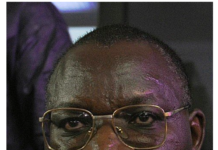Helsinki 07th May 2016
Press release
On Friday 6 May 2016, The Kenyan Interior Ministry announced that the country was closing down all refugee camps and that it has already disbanded the refugee authority in the country, the Department of Refugee Affairs. This move would displace more than 600,000 people living there. The refugees living in cities will suffer xenophobic attacks or be hunted down like criminals for illegal entry into a country that is implementing anti-refugee policies.
Action is urgently needed to ensure that refugees in Kenya receive the protection to which they are entitled to.
In the statistical 2007 yearbook in its chapter 4 “asylum and refugee status determination, the UNCHR defined the conditions of cooperation with host countries in the determination process as follows: “In some countries, UNHCR cooperates closely with governments in the determination of refugee status. This cooperation can take on a variety of forms, including assistance in drafting asylum laws, registering asylum-seekers, legal training, attending hearings or participating in the decision-making process. In some cases, UNHCR conducts refugee status determination (RSD) under its mandate. This can be the case if a country is not a State party to the 1951 Convention and/or its 1967 Protocol or if it has not enacted refugee legislation. Another reason can be if the State’s national refugee status determination procedure is a non-functioning one (including countries that have made geographic reservations related to the 1951 Convention); the State has a national RSD procedure that does not meet minimum standards for fairness and efficiency; and/or for a residual population of asylum seekers after an RSD hand over to the national authorities”.
The paper explained the transitional process for UNHCR to hand over refugee status determination to Kenya.
In March 2016, both parties concluded that it was time for the Government of Kenya to take over the process assuring that the Kenyan DRA ( Department of Refugee Affairs) was fully operational in this respect.
In 2015, UNHCR budget for Kenya was 244,918,731 USD. But still Kenya’s refugee camps are in the most inhospitable desert areas of the country, with unbearable heat, lack of water, vegetation and proximity to borders or conflict areas. The food rations in Kenya’s camps have fallen below the minimum and malnutrition in camps was on the rise. Recurrent attacks and insecurity within refugee camps in Kenya have been reported many times as well.
In the African great lakes regions and the horn of Africa, waves of refugees have been a direct result of armed conflicts, dictatorship, lack of democracy with corrupt leaders extending their terms in office in order to rule for life. The situation of refugees and displaced people has been deteriorating every where in the region as the international community turned a blind eye to those corrupt and power thirsty « strong » leaders.
We call upon the UNHCR and the international community to seriously engage the Kenyan government and to survey and speed up relocations and resettlements in Europe, North America and Australia.
National Movement Inkubiri
Secretary General
Sixbert Musangamfura
A sign of a Good Leader is not how many followers you have, but how many Leaders you create (M.Gandhi)































































